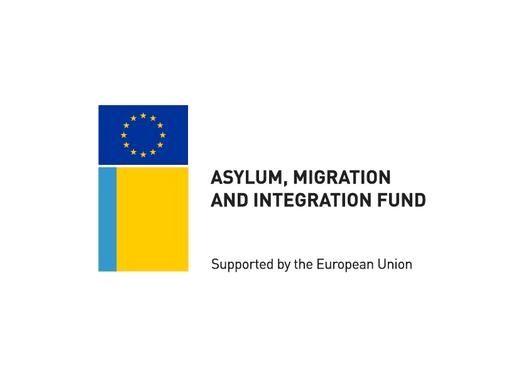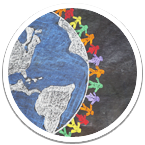Equality and discrimination

Equality is the basis for a fair society. Equality guarantees that everyone has the same basic rights.
Discrimination is prohibited on the basis of ethnic or national origin, nationality, language, religion, belief, opinion, age, disability, gender, sexual orientation or some other personal attribute.
Forms of discrimination include poorer or more disrespectful treatment, hate speech, name-calling, verbal abuse, threats or harassment. Discrimination occurring in services may include being excluded from services or receiving insufficient advice and guidance.
Racism refers to considering some group of people or members of this group as worse than others based on characteristics such as ethnic origins, nationality, mother tongue or religion.
Racism occurs on three different levels. Racism between people is apparent in interpersonal interactions. Institutional racism refers to practices producing inequality linked to societal structures, such as services and operating approaches. Internalised racism refers to the beliefs or thoughts individuals internalise of their own or their group’s inferiority.
Discrimination, racism and hate speech diminish welfare
Discrimination, racism and hate speech diminish the quality of life of those experiencing these. For instance, they affect people’s sense of security and prevent them from involvement in society.
Experiences of discrimination are known to be connected to the mental and physical health of people who have moved to Finland. Experiences of discrimination increase the likelihood for a poor perception of health, long-term illnesses, and mental health symptoms. Discrimination also harms an individual’s self-esteem and causes a feeling of inferiority.
Inappropriate treatment occurs on the streets, in services and at workplaces
According to the Migrant Health and Wellbeing Study (Maamu), one fifth of people of Russian, Kurdish or Somali origin have encountered name-calling or verbal abuse in everyday situations. Similarly, particularly women of African origin reported having encountered inappropriate treatment from strangers in the Survey on work and well-being among people of foreign origin (UTH).
According to the UTH survey, one in ten had experienced discrimination and unfair treatment when using the services provided by the authorities, such as the police, Kela or social welfare services, health care services, or the TE Offices.
Similarly, young people of foreign origin were at a greater risk at being bullied at school or not having a close friend compared to the young people in upper comprehensive school belonging to the mainstream population. For instance, one in five boys of foreign origin are bullied at school on a weekly basis.
Situations suggesting ethnic profiling also occur in many places: on the streets and in parks, at railway and subway stations, while driving a car, in shops and shopping centres, in restaurants and bars, and in airports and ports.
Discrimination and prejudices may also be one of the causes for why those who have moved to Finland from abroad struggle to find employment. According to a fact sheet by the Centre for Gender Equality Information of the National Institute of Health and Welfare, people are especially discriminated against based on their ethnic background and gender in Finland’s labour market.
Those who have emigrated to Finland also include people who belong to a number of different minority groups at the same time (e.g. an older and disabled immigrant) and are therefore at a risk of multiple discrimination.
The COVID-19 pandemic has increased experiences of discrimination among those who have moved to Finland. According to the MigCOVID study, one in five of those who moved to Finland reported that during the pandemic they
- had been treated inappropriately
- had been insulted verbally, or
- had experienced threats or harassment.
Nearly half of those who had experienced inappropriate treatment more often said that it was weekly.
Promoting non-discrimination is possible
Non-discrimination starts with decision-makers and service structures. In this case, equality is taken into account in planning services, preparing strategies and assessing operations. If necessary, it is possible to make use of positive discrimination, which involves supporting members of minority groups when they would otherwise be at a risk of remaining in an unequal position.
For instance, the City of Helsinki provides its schools with a positive discrimination appropriation. The funding is distributed based on the level of education of the pupil’s guardians, families’ income level, and immigrant background of pupils in the school admission area.
An anonymous job application process is used in an aim to create more equal recruitment opportunities for all. According to international studies, the anonymous application process reduces discrimination on the basis of age and gender in job application. There is also occasionally indirect discrimination in recruitment situations, for instance, when a cleaning worker is requires perfect Finnish language skills.
Encouraging organisations to engage in internal diversity increases contacts between different people and therefore reduces discriminatory attitudes. In addition, cooperation between work communities and agents such as experts by experience with immigrant background and different organisations also increase contacts between different cultures and thus reduce prejudices.
Koulutetut Kokemusasiantuntijat ry
According to the Non-discrimination Act, organisations with more than 30 people must prepare a non-discrimination plan that includes a report of the achievement of equality in different functions. Engaging personnel in preparing the plan also allows the personnel to see what non-discrimination means in practice in their work.
Equality planning guide
Professionals must be encouraged to engage in open discussion on fairness and the principles of non-discrimination must be agreed together. A culturally sensitive approach promotes the implementation of non-discriminatory services.
Cultural competence and cultural sensitivity
A research project seeks to achieve equality and non-discrimination in working life
Rask S, Elo I. T., Koskinen S, Lilja E, Koponen P, Castaneda A. E. The association between discrimination and health: findings on Russian, Somali and Kurdish origin populations in Finland. Eur J Public Health 2018;28(5):898–903.
Castaneda AE, Rask S, Koponen P, Suvisaari J, Koskinen S, Härkänen T, Mannila S, Laitinen K, Jukarainen P, Jasinskaja-Lahti I. The association between discrimination and psychological and social well-being: a population-based study of Russian, Somali and Kurdish migrants in Finland. (pdf 329 kt) Psychology Developing Societies 2015;27(2):270-292.





